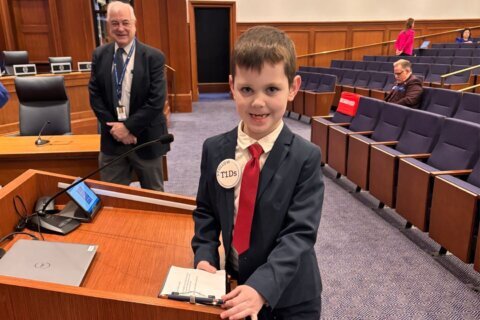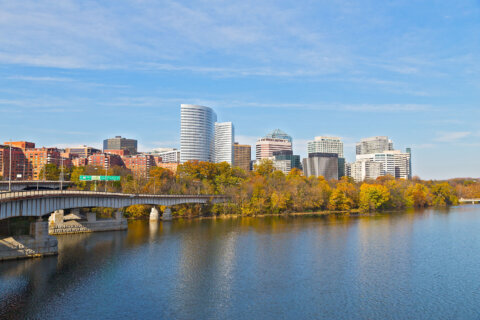This article was reprinted with permission from Virginia Mercury.
Hundreds of bills are filed for General Assembly consideration each year. In this weekly series, the Mercury takes a look at a few of lawmakers’ 2024 proposals that might not otherwise make headlines during the whirlwind legislative session.
House Bill 1025: Letting more people claim roadkill
This bill from Del. Tony Wilt, R-Harrisonburg, allows any person to claim a deer, bear, turkey or elk that appears to have been killed in a motor vehicle collision. Under current law, only the person who hits a deer or bear with their vehicle is permitted to claim the dead animal.
Wilt told the House Natural Resources Subcommittee last month that the animal can only be claimed once it is reported to the Department of Wildlife Resources or local law enforcement.
“If you’ve hit a deer and maybe it’s put your car out of commission, if I come along, I can call the department and they can give me permission to take the animal,” Wilt said.
His bill would also permit the person who claims the animal to use it for whatever purposes they want, including eating it or claiming the head as a trophy. Some subcommittee members, like Del. Rob Bloxom, R-Accomack, raised concerns that allowing people to eat roadkill whose time and manner of death are unknown could be dangerous.
Wilt said that “if you see an animal lying on the road and it’s blown up twice its size, it’s probably not a good bet … but you still have to get permission.”
“If you feel brave enough that you want to chance it,” he added, “you would have that opportunity under this legislation.”
When asked what problem Wilt’s legislation is looking to solve, the delegate told the subcommittee that it would help to alleviate some of the Virginia Department of Transportation’s workload. The department is responsible for collecting dead animals on the side of the road and then transporting them to landfills.
The fiscal impact statement on the legislation also notes the bill could result in a reduction of Class 2 misdemeanors, the punishment for violating the current law, and could possibly decrease jail populations and costs to the state.
The legislation passed the House unanimously.
Senate Bill 168: Reducing the food-to-beverage ratio for restaurants serving mixed drinks
SB 168 from Sen. Bryce Reeves, R-Fredericksburg, would increase the amount of mixed beverages a licensed restaurant can serve based on average monthly food sales, replacing the current mandatory 45% food-to-beverage ratio enforced by the Virginia Alcoholic Beverage Control Authority.
The legislation would set a 35% food-to-beverage ratio for restaurants with monthly food sales of between $4,000 and $10,000 and impose no ratio on those with monthly food sales of over $10,000.
Reeves told the Senate ABC Subcommittee last month his bill “greatly benefits restaurants across the commonwealth who are greatly limited by antiquated ABC regulations.”
The current law has been a long-running concern for many restaurant owners, especially those that sell expensive spirits. McCormack’s Whisky Grill in Richmond, for example, has run into trouble with the law for exceeding the ratio, even though some of the top-shelf liquor it sells — like a $2,000 shot of Macallan M whiskey — can make it nearly impossible to meet state targets.
Robert Melvin with right-leaning think tank R Street Institute told the subcommittee that Reeves’ legislation is beneficial for consumers who want to take advantage of craft cocktail establishments seen in other states like New York.
He also pointed out customers who don’t drink alcoholic beverages at restaurants can also feel the impacts of the ratio: In 2014, ABC raised liquor prices throughout the commonwealth due to state budget shortfalls. “As a result,” he said, “that goes and impacts the food-to-beverage ratio for the restaurant, and then the restaurants raise the food prices as well.”
While no legislators or stakeholders spoke in opposition to the bill, previous attempts to change the ratio have produced spirited debate in the General Assembly. In 2015, then-Senate Minority Leader Dick Saslaw, D-Fairfax, declared, “If you can’t meet that ratio, you ain’t running a restaurant, you are running a bar. If you want saloons in Virginia, say so.”
Reeves’ bill unanimously passed the Senate.
More from this series:
- English ivy sales, decriminalizing suicide and juror ages
- Medical debt, mobile home park tenant rights and state data breaches
- Lab meat, child labor penalties and sales in public spaces
- Animal cruelty offenders, age of marriage and towing fees
House Bill 517: Designating the European honey bee as the official state pollinator
This legislation from Del. Patrick Hope, D-Arlington, would designate the European honey bee as the official pollinator of Virginia.
The delegate told a House subcommittee last month he’s carrying the bill for over 1,000 Virginians who signed a petition requesting the insect be the official state pollinator.
The European honey bee, said the delegate, is integral to the success of agricultural industries and native Virginia plants. The insect was also crucial in guaranteeing the success of the Jamestown settlement — where it was first introduced in North America — as it allowed European colonists to pollinate non-native fruits and vegetables they brought, like apples, potatoes and peaches.
If the king of England had not sent honey bee colonies to Jamestown, Hope said, “we may not have had a successful Jamestown settlement, and, of course, [honey bees] wouldn’t be in North America.”
The honey bee also has a significant impact on Virginia’s economy. Hope said fruits and vegetables pollinated by the insect have brought over $116 million in profits for the state annually, as well as $1 million from honey sales.
Del. Buddy Fowler, R-Hanover, said that “as someone who lives on a farm, we would have no agriculture to speak of without the honey bee.”
Subcommittee Chair Del. Paul Krizek, D-Alexandria, agreed it’s important to recognize the bee for the work it does but reminded Hope that it’s also important to protect native pollinators and plants. While the honey bee was imported by Europeans, there are roughly 4,000 species of bees that are native to North America, according to the U.S. Geological Survey.
Krizek also said he is “perturbed” that there are non-native Nandina trees planted on the General Assembly grounds, which can cause certain birds to die if they eat the tree’s berries.
“I would like to see us work together and try to get a native garden planted out in front [of the General Assembly building] with native plants,” Krizek said. “That would be good for your pollinator and other Virginia pollinators, so that’s something we need to work on.”
Hope’s bill passed the House unanimously.







